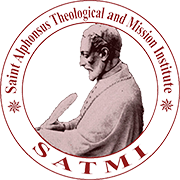By: Fr. Neil Badillo, OFM, S.Th.D | SATMI Director
There is a long-standing tradition that during the feast of St. Dominic de Guzman, the Minister Provincial of the Franciscan Order presides over the mass and preaches to the Dominicans. Likewise, on the Feast of St. Francis of Assisi, the Prior Provincial of the Dominicans gives the same favor to the Franciscans.
This beautiful tradition not only ritualizes and immortalizes the friendship of St. Dominic and St. Francis but also celebrates the enormous contributions of these twin Orders to the Western Church during the height of the Middle Ages. They separately founded a brand-new apostolic and mendicant religious Orders. Both of them are believed to have attended the Lateran Council in 1215 and shared their mutual admiration and support for one another.
This mass of the Holy Spirit and the beginning of our school year in 2023 fall on the same day as the feast of St. Dominic. Coincidentally, I am a Franciscan friar officiating this mass but preaching, obviously, not to the Dominican friars but to the equally respectable members of the Congregation of the Holy Redeemer, Diocesan Priests, a Benedictine nun, and a biblical scholar, a Pauline sister, and a professor in liturgy, SATMI’s distinguished lay professors and formators, our staff, and other enrolled students both and lay and religious: the TOR, Cavanis Fathers, Mary Little Children Community, and SDV.
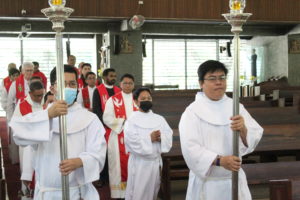
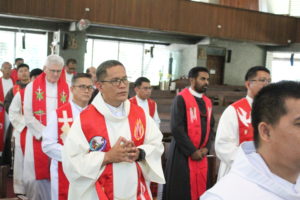
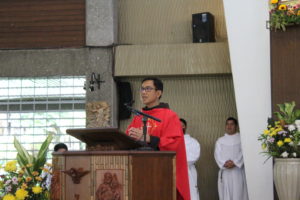
Where we are in Christian history today is part of a long intellectual and theological tradition. The discussion of the Middle Ages would be incomplete without mentioning the charism, spirituality, and theology of these two mendicant Orders, which I believe, in essence, are still very much an integral part of our current theology. With their respective illustrious scholastic theologians like the towering Dominican St. Thomas Aquinas, and the Franciscan St. Bonaventure and Blessed Duns Scotus, these two religious Orders made a very distinct but complementary intellectual traditions within our Catholic Christian thought for the last 800 years.
This differentiation may be simplistic, but for the purpose of being sensitive to nuances, allow me to make comparison. The Dominican intellectual tradition, as influenced by the philosophy of Aristotle, gives primacy to the intellect and therefore to the transcendental of God as Absolute Truth and as Pure Being. For Aquinas, human beings are rational animals, and their finality is to know and see God, which orients us to do good and love God. We must seek the harmony of faith and reason in our theological endeavors, which are speculative and practical. As seekers of truth, studying and analyzing the Word of God is our primary calling.
On the other hand, the Franciscan tradition, as influenced by Augustine thinking and the forma vita of Francis of Assisi, places heavy emphasis on the primacy of the will and love and therefore views God not as Pure Being but God as Being Itself, the Sumum Bonum, the absolute Good, and the relational God. The human being is unique, and its finality is to love God. Theology recognizes that faith is in the intellect, and therefore it is primarily affective and mystical. We are inspired by this tradition not so much to study as to contemplate the Word of God.
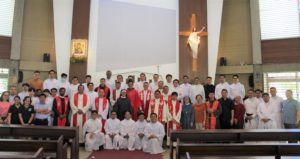
Truth, goodness, and beauty; intelligence and love; faith and reason; science and mysticism; rationality and relationality; speculation and affection—this is a theology that seemingly appears to be in perfect balance. It remains incomplete, however, until it is founded on prayer, the driving force championed by the Benedictine tradition, and the remarkable pastoral and missionary zeal of the Redemptorists and Pauline traditions. SATMI was born and continues to exist within the confines of this extremely rich tradition that we must call charisms of the Holy Spirit—and therefore, not anymore as simply as Dominican, Franciscan, Benedictine, Pauline, Marian, Redemptorist, etc., but the great Catholic intellectual tradition.
As we receive Christ in this Holy Eucharist, may he will nourish us in our desire to praise, know, love, and serve Him.
